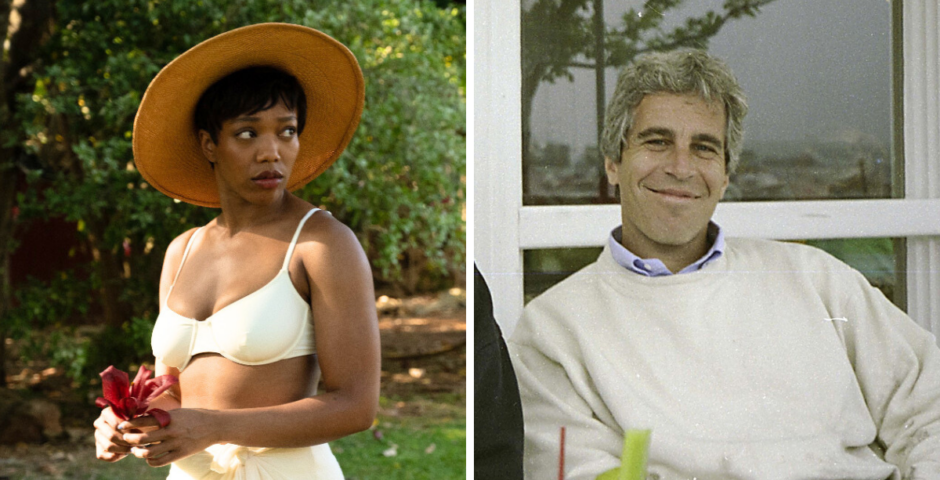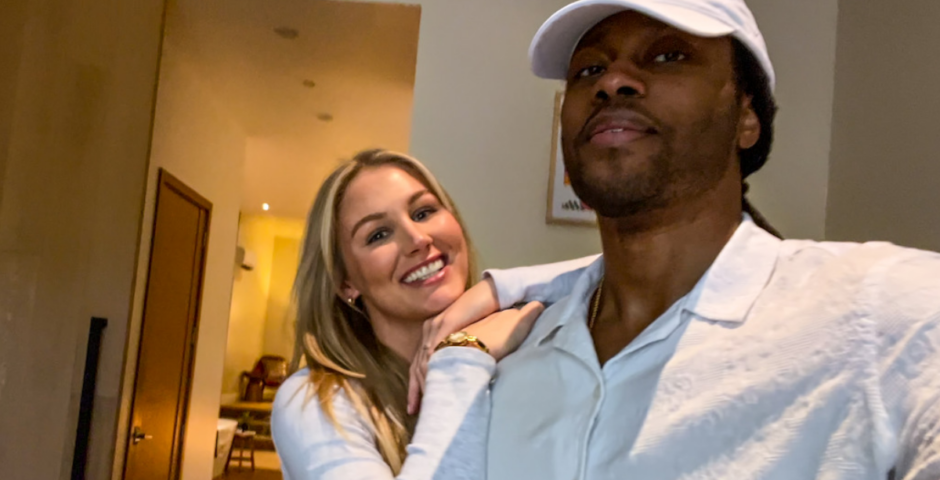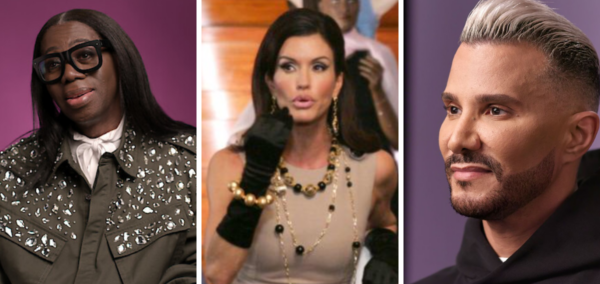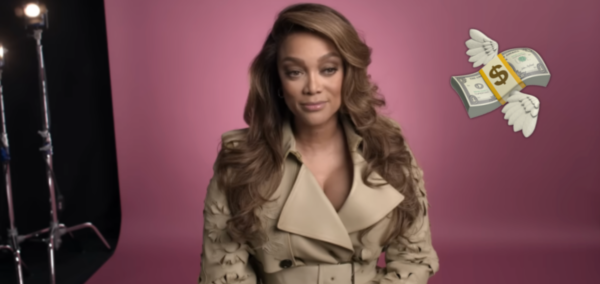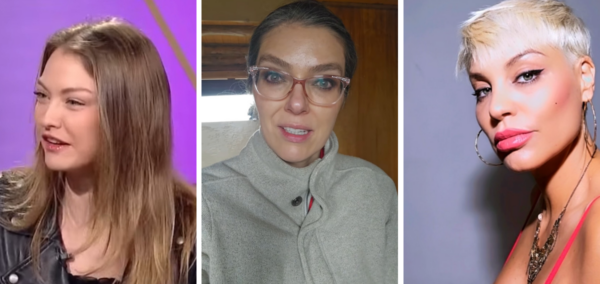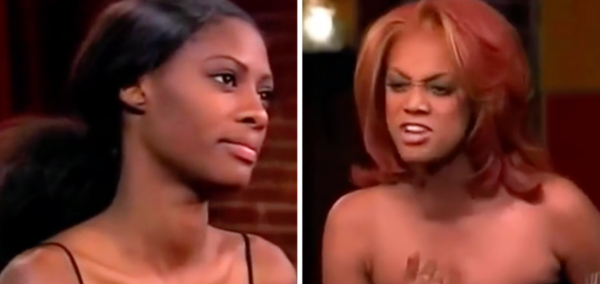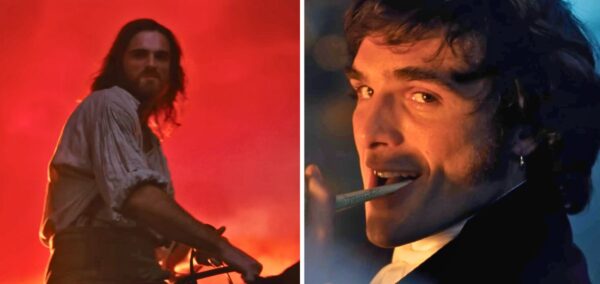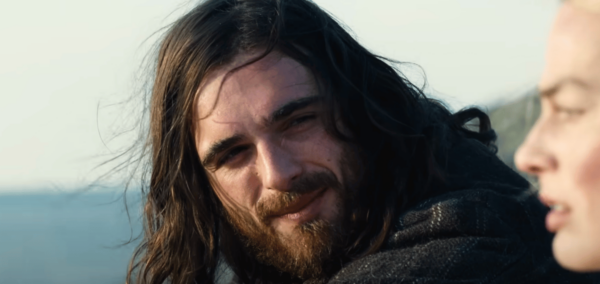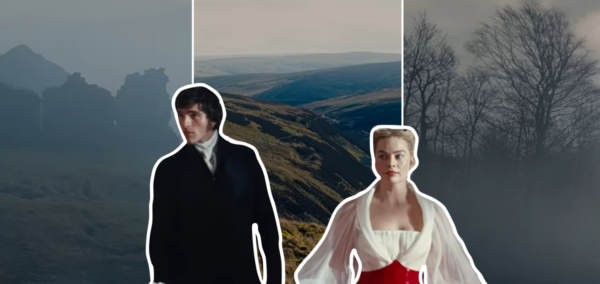
The biggest ways the Wicked film changed the iconic musical and the way weirder book
Er, Elphaba and Fiyero have a kid in the book?
The Wicked film is officially taking over all our lives, and introducing non-fantasy fans to all the lengthy and deeply unhinged Wicked lore. The film is an adaptation of half of the musical Wicked which is an adaptation of a 1995 novel called Wicked: The Life and Times of the Wicked Witch of the West, which is essentially fanfiction of the the 1939 film The Wizard of Oz, which is an adaptation of the 1900 book The Wonderful Wizard of Oz. Are you lost yet?
Here’s a handy guide for the uninitiated into the biggest ways the film changed the musical and the very disturbing Wicked book.
The film finally shows us Elphaba’s backstory from the book

Mini Elphaba before sh*t gets real at Shiz
(Image via Universal Pictures’ YouTube)
Elphaba has way, way more of a backstory in the movie than in the musical. We see the other kids in Munchkinland being mean to her because of her green skin.
This is much more like the book, which has a whole section devoted to Elphaba’s childhood (and how horrible it is). Her mother struggles with an alcohol addiction then starts neglecting her daughters. She dies giving birth to a boy called Sheltergod, who is cut from the film as well as the musical. The book does also make it explicit right at the end that Elphaba is the Wizard of Oz’s biological daughter.
Madam Morrible is much more important in the movie

This gal
(Image via Universal Pictures)
In both the book and the musical, Elphaba gets accepted into Shiz University outright. The film makes this moment so much more dramatic. Elphaba is only at the uni to drop off her sister Nessarose. Madam Morrible notices Elphaba’s hidden genius, and invites her to join the uni for some extra special magic training.
Prince Fiyero’s romance with Elphaba is totally different

Just watching Wicked for the plot x
(Image via Universal Pictures)
The film version of Wicked really shakes up Elphaba and Glinda’s love triangle with Prince Fiyero. Early in the musical, he rocks up to Shiz University. Elphaba, Glinda and the other students all meet him at the same time. The film makes way more of the romance. Fiyero and Elphaba have a separate meet-cute when she’s strolling back from the history-teaching song-singing goat’s house.
The book version of these events is different again, and way more disturbing. Nothing romantic happens between Fiyero and Elphaba while they’re at uni. They run into each other five years later, when Fiyero is married with three kids. The couple have an affair, then Fiyero is assassinated. It’s heavily implied that the Wizard of Oz is behind this as a way to punish Elphaba. She has a mental breakdown, then is in a coma for a year, during which time she gives birth to a son called Liir. But because Elphaba was unconscious while all this happened, she doesn’t feel any kind of attachment towards Liir. Really. This actually happens in the books. I did warn you they were disturbing.
The Wicked movie resurrects some long-forgotten lore from the books

Cheeky throwback pic of Idina Menzel and Kristin Chenoweth in the Wicked musical
(Image via Universal Pictures’ YouTube)
The musical really condenses all the politics of Oz. The Wizard basically gets to rule the land because the munchkins get super overexcited about a hot air balloon (and honestly, who can blame them?)
However, the movie delves deeper into the Wizard’s backstory from the books. Idina Menzel and Kristin Chenoweth make mega-exciting cameos to sing about a prophecy. Apparently some long-dead overlords called The Wise Ones wrote a spellbook called The Grimmerie. The prophecy says that whoever can read The Grimmerie can rule Oz. This is how the Wizard wangled his way into power. The Grimmerie is alluded to in the Wicked musical, but is a much bigger deal in the movie and the book.
The lore in the book is way more complex. It’s a long-lost spellbook which Elphaba finds and learns loads of magic from. The Wizard tries to steal it from her. Later on, Elphaba’s descendants and Glinda fight over the Grimmerie for many, many sequels.
Defyyyyyyyyying Graaaaaaavity
The legendary Defying Gravity song was way different in the film to how it is in the musical. In the musical, the song lasts about six minutes. In the movie, the song is broken up by more dialogue, action sequences and visions of Elphaba’s younger self (???). The whole scene takes about fifteen minutes.
The director Jon Chu explained to GamesRadar what the logic behind this was. Basically, he felt that cinemagoers were more cynical than the average theatre kid, so needed more of an explanation for Elphaba’s thought process in this moment. He said, “The audience is more sceptical in a movie, and so the emotional turns for the actors and for the characters have to be very solid. So it came out of a necessity more than anything.”
He continued, “She knows at this moment that you don’t have to prove yourself to anyone. She has to prove it to herself. How do we show that through this number that already exists? And you’re not going to add new words to it. So what are you going to do?”
Featured image of musical Elphaba via Universal Pictures’ YouTube. Featured image of the book via Amazon. Featured image of movie Elphaba via Universal Pictures.


